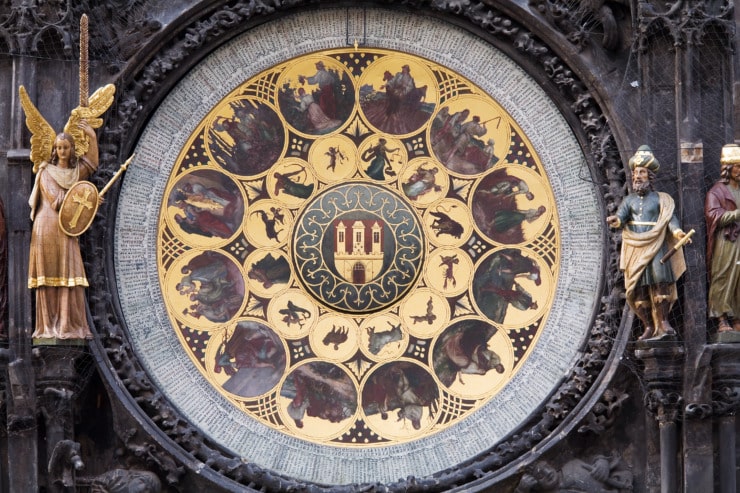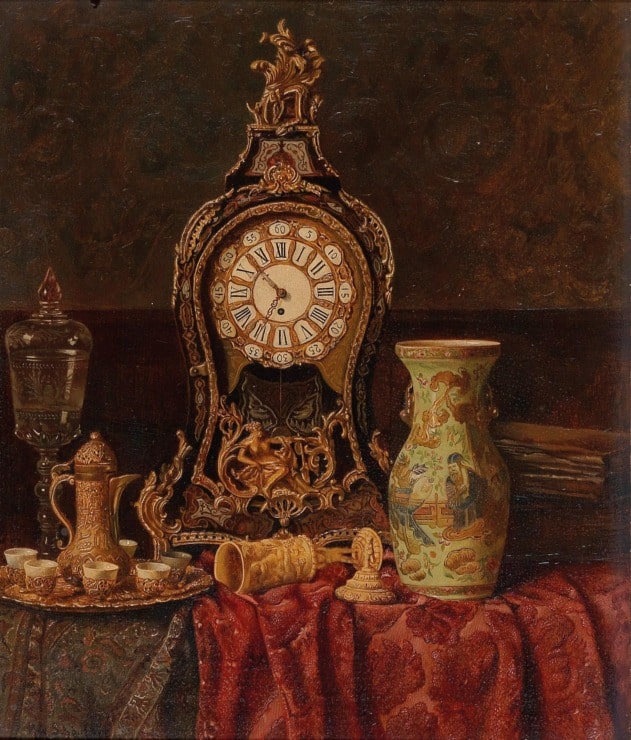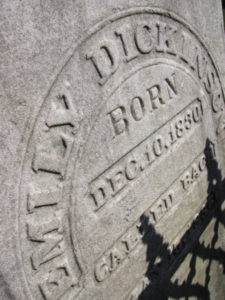< Return to Emily Dickinson Poems
A Clock Stopped- Not The Mantel’s
A clock stopped — not the mantel’s
Geneva’s farthest skill
Can’t put the puppet bowing
That just now dangled still.
An awe came on the trinket!
The figures hunched with pain,
Then quivered out of decimals
Into degreeless noon.
It will not stir for doctors,
This pendulum of snow;
The shopman importunes it,
While cool, concernless No
Nods from the gilded pointers,
Nods from seconds slim,
Decades of arrogance between
The dial life and him.
-Emily Dickinson
Enjoy Artistic Representations of “A Clock Stopped- Not The Mantel’s” by Emily Dickinson

The Prague Astronomical Clock in Old Town. Photo by Jorge Royan, 2008.

Still Life with Antiques by Max Schödl, 1921.
Listen to these Readings of “A Clock Stopped- Not The Mantel’s”
Listen to this Musical Interpretation of “A Clock Stopped- Not The Mantel’s” by Emily Dickinson
About Emily Dickinson

Emily Dickinson estate in Amherst Massachusetts
Emily Dickinson was born in Amherst, MA, in 1830, the daughter of state and federal politician Edward Dickinson. A prolific poet, Dickinson was known to draft poems on the backs of envelopes and chocolate wrappers. Nearly 1800 of her poems were discovered by her family following her death, many in 40 handbound volumes she had sewn together, written in her own hand with her famously unorthodox punctuation.

Emily Dickinson & Susan Gilbert
The enigmatic poet is remembered as a recluse, rarely leaving the Dickinson estate. While she did receive callers at her home, conversations were often held from opposite sides of a closed door.
She lived with her sister, Lavinia, while her brother Austin and his wife, Susan Gilbert, lived down a narrow path on the property. Her writing reflects profound loneliness as well as a deep capacity for love and affection, much of which is believed to have been shared with Gilbert.
Her first collection of poems, Poems by Emily Dickinson, was published four years after her death, with Poems: Second Series and Poems: Third Series following in the next several years.

“Called Back”
Like Walt Whitman (who she reportedly never read), she is considered one of the most influential poets in the emergence of a distinctly American poetic voice.
She was born on December 10, 1830, and today visitors to Emily Dickinson’s grave can witness a lasting image of her perspective on life. The etching on her stone marking the date of her death—May 15, 1886—bears the words “Called Back.”
< Return to Emily Dickinson Poems
